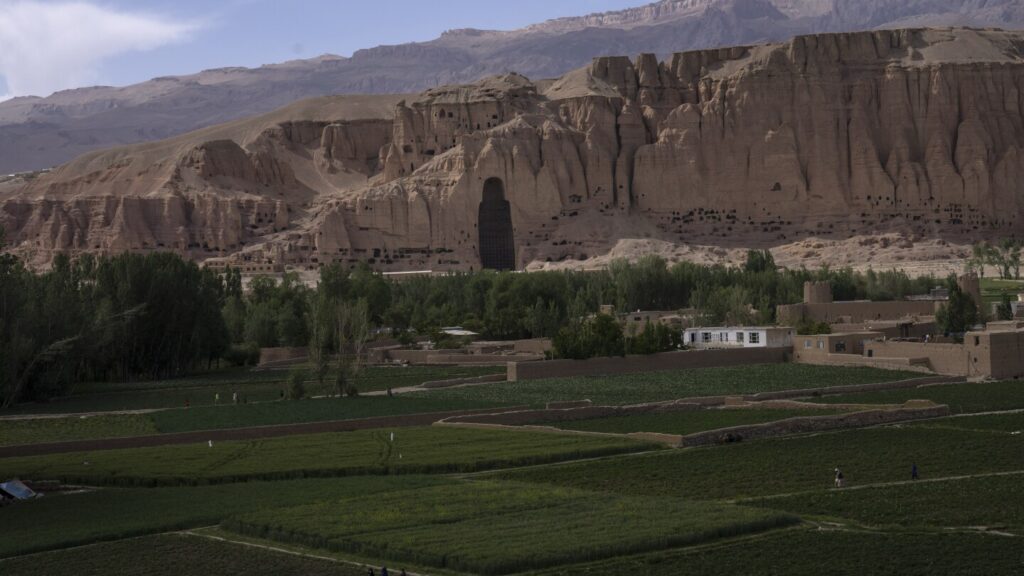
KABUL, Afghanistan — In a surprising twist of fate, Afghanistan is gradually emerging as a destination for adventurous tourists. Despite its tumultuous history and ongoing political challenges, travelers are beginning to explore the country by plane, motorbike, camper van, and even bicycles. The Taliban government, which seized control over three years ago, is eager to welcome these visitors, hoping to tap into tourism’s potential economic benefits.
Deputy Minister of Tourism Qudratullah Jamal emphasized the warmth and hospitality of the Afghan people in a recent interview. “Tourism brings many benefits to a country. We have considered those benefits and aim for our nation to take full advantage of them,” Jamal stated, highlighting the government’s interest in developing this sector.
The Economic Potential of Tourism
Tourism is a multi-billion-dollar industry worldwide, and Afghanistan’s government sees it as a vital opportunity to alleviate the country’s economic struggles. Afghanistan remains largely isolated on the international stage due to the Taliban’s controversial policies, particularly regarding women’s rights. This isolation has left much of the population in poverty, making tourism an attractive prospect for economic growth.
“We are currently earning a considerable amount of revenue from this industry, and we are hopeful it will grow even more in the future,” Jamal noted. He emphasized that tourism revenue can benefit more layers of society compared to other industries, potentially strengthening the national economy.
Challenges and Security Concerns
Despite the potential, the flow of tourists remains a trickle. Tourist visas are relatively easy to obtain, and flights from major hubs like Dubai and Istanbul operate regularly. The government has even established a training institute for men in the hospitality sector, although women are excluded from these opportunities.
Last year, nearly 9,000 foreign tourists visited Afghanistan, with around 3,000 arriving in the first quarter of this year. However, security concerns persist. While the Taliban’s takeover in August 2021 ended much of the insurgency-related violence, threats remain. An Islamic State affiliate is still active, and a tragic attack in May 2024 in Bamiyan, a key tourist site, left six people dead, including three Spanish tourists.
“Afghanistan has gone through many years of war and hardship. Now, we want tourists to come and see the true traditions and customs of Afghans, to understand Afghan life, creativity and resilience,” Jamal said, asserting that there is “comprehensive security across Afghanistan.”
Ethical Considerations and Cultural Exchange
The ethical implications of visiting Afghanistan are a significant concern for potential tourists. The Taliban’s policies severely restrict women’s rights, banning education beyond primary school for girls and limiting women’s access to public spaces. Critics argue that tourism could be seen as tacit support for these policies.
Some travelers, like French-Peruvian Illary Gomez and her British partner James Liddiard, have wrestled with these ethical dilemmas. They ultimately decided to visit to see the situation firsthand. “Some things didn’t feel morally right,” Gomez admitted. However, they found the Afghan people to be warm and welcoming, and they believed their presence supported the local population rather than the government.
“By traveling, you put money in the hands of the people, not the government,” Liddiard explained.
Building Bridges and Future Prospects
Deputy Minister Jamal sees tourism as a means of fostering international relations and cultural exchange. “It is a great way to promote interaction between the people of different countries. It helps build international relations and is also beneficial for trade,” he said.
While restrictions on Afghan women remain strict, foreign women experience more relaxed rules. They are generally required to wear headscarves but are often allowed into areas restricted to Afghan women.
Jamal concluded that tourism is not just about economic development; it also offers spiritual and political benefits. “A foreign traveler seeing the country with his own eyes creates closeness, builds connections, and fosters trust among people,” he said. “They will respect each other’s culture, and the distance between peoples will diminish.”
As Afghanistan navigates its complex path forward, the burgeoning tourism industry represents both a challenge and an opportunity, offering a glimpse into the country’s potential for transformation and growth.







